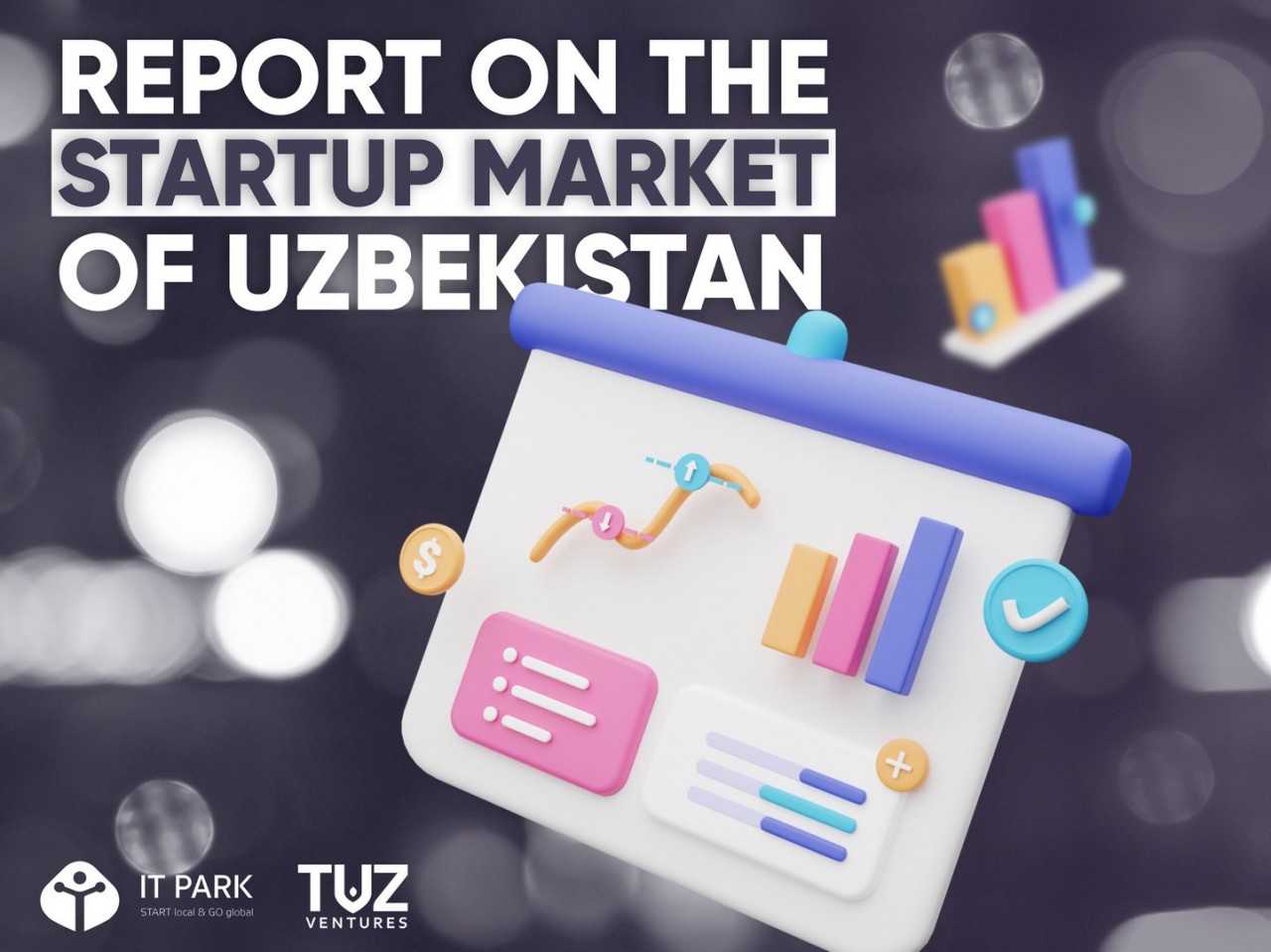
Results of the report on the startup market of Uzbekistan from IT Park and TUZ Ventures
IT Park with TUZ Ventures made a report on startup market of Uzbekistan.
In this report, the ecosystem of technologic startups in Uzbekistan is described in-depth and the benefits for four separate groups are presented: the founders can get an idea about their local startup community, government officials can learn about their country’s startup ecosystem, investors will have the opportunity to make informed decisions about the viability of startups, and foreigners will discover the dynamics of the domestic market to make investment decisions, development and journalism.
In order to get this information, TUZ Ventures which is in its early venture capital stage, specializing in technologies in Central Asia and the Caucasus, collaborated with IT Park, a government department mandated to develop a startup ecosystem in Uzbekistan. Initial research was conducted on Uzbek startups: 223 founders were interviewed with the help of online questionnaires or telephone calls. All responses were provided between June and July 2020, during COVID-19 peak. All four areas were researched well: market, founders and talents, startup support and capital.
Startup ecosystem in Uzbekistan
According to the reviews, startups in Uzbekistan usually consist of a team up to 5 people. Team members are local founders, local or international developers and also marketing specialists.
Many startups are in their early stages: 39% - idea, 27% - MVP, 22% - first sales and 8% - active growth. The most popular verticals are educational technologies, e-commerce, fintech and agriculture.
A majority of Uzbek startups (68%) develop their products or service for the Uzbek market, whereas only 21% of the founder’s plan to scale in CIS countries.
Age range of startup founders
Half of the startup founders aged 20-29 demonstrate a young and ambitious human resources reserve in Uzbekistan.
About 36% of the founders were born in Tashkent, while the other founders who work in the capital are from Samarkand, Tashkent and Bukhara regions. Most of the founders have higher education, many of them have degrees in STEM areas, which shows that there are a lot of qualified specialists in the field of science among the startup’s founders in Uzbekistan.
Lack of girls and women
The research revealed a trend towards gender inequality in Uzbekistan’s startup ecosystem. Only 12.7% of the startup founders are women. The lack of gender balance is characteristic of male-based startups: over 38% of male-headed startups have no female staff. Such gender inequality in the team can be explained by the dominant patriarchal culture in Uzbekistan, where people prefer to hire male candidates for management positions.
Attrаcting finance
Many founders rely on their personal access to finance (i.e. savings and funds), and consequently a large proportion (44 per cent) of the founders have no experience in attracting investors. Startups attract different amounts of investment. Early startups are in search of investments ranging from $11,000 to $50,000, and startups built over a period of three to four years, during the development and growth phases of MVP generally attract between $100,000 and $200,000. Therefore, the older the startup and the higher its stage, the more money they need for funding.
State support
The state pays great attention to support startups and IT companies. As an example, we can take IT Park residents receiving tax allowances.
In particular, IT companies that are residents of IT Park are exempt from all taxes.
There are a number of benefits in becoming a resident of IT Park for both local and foreign IT companies:
- Income tax - 7,5%
- VAT, tax on benefits, land tax, etc. - 0%;
- Social tax – 0%;
- Exemption from payment of customs duties when importing goods and services for own use.
While IT Park taxes non-residents:
- Income tax – 12%
- VAT, tax on benefits, land tax, etc.- 5-10%;
- Social tax - 12-25%;
- Customs payments are available for imports of goods and services for own use.
The report showed a complete picture of Uzbekistan’s startup-ecosystem, revealing both its strengths and weaknesses. The report brought us closer to a better understanding of how to improve ecosystem development and what steps to take.
The full report is available here: https://clck.ru/VWBRw
2021-06-15